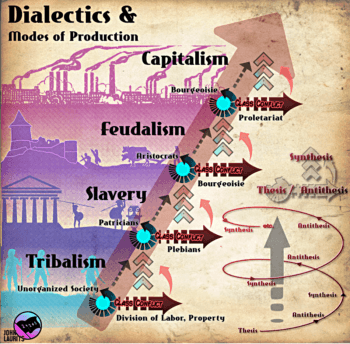In my very first post on this blog, I laid out for readers the Marxist term ‘base and superstructure.’ Lots of people new to leftist ideas could use a 101-level story about many of Marx’s key terms. And that especially goes for any term related to the analysis of economic relations over the course of history. In this post, I’ll approach the term ‘modes of production’ from a similar mindset.
Indeed, Marx didn’t just analyze capitalism and its social relations. He didn’t only talk about the transition from capitalism to a socialist society. He embedded all this within his broader theories of history. ‘Modes of production’ is a key term within Marx’s historical materialism.




